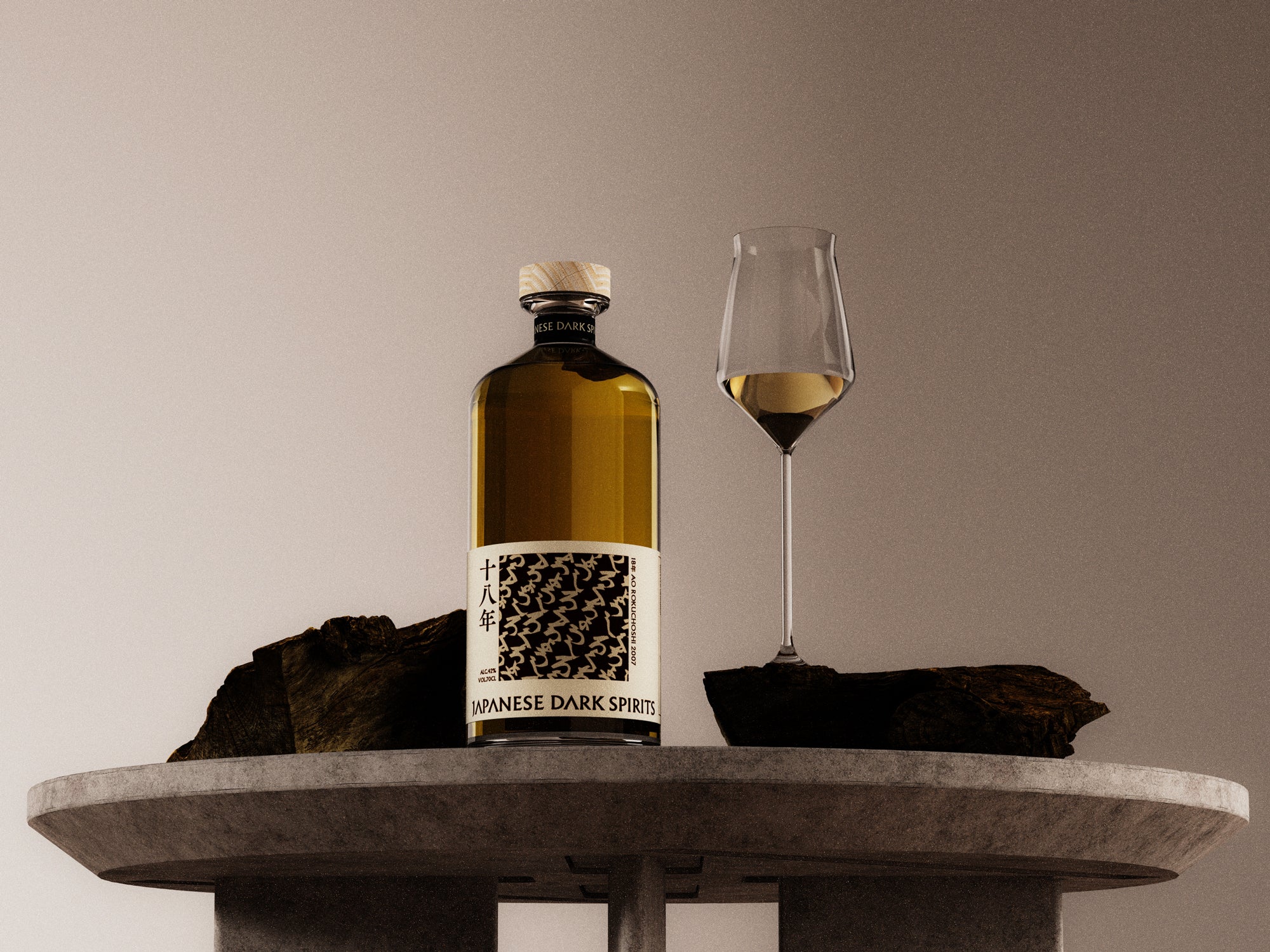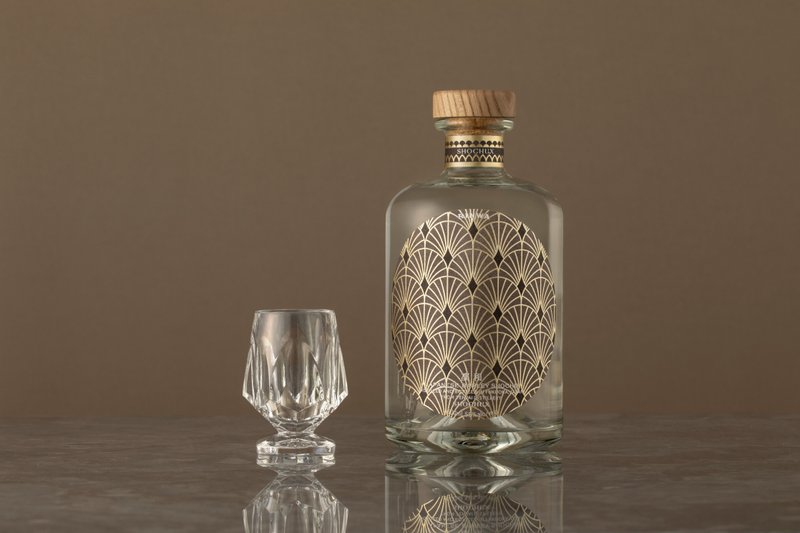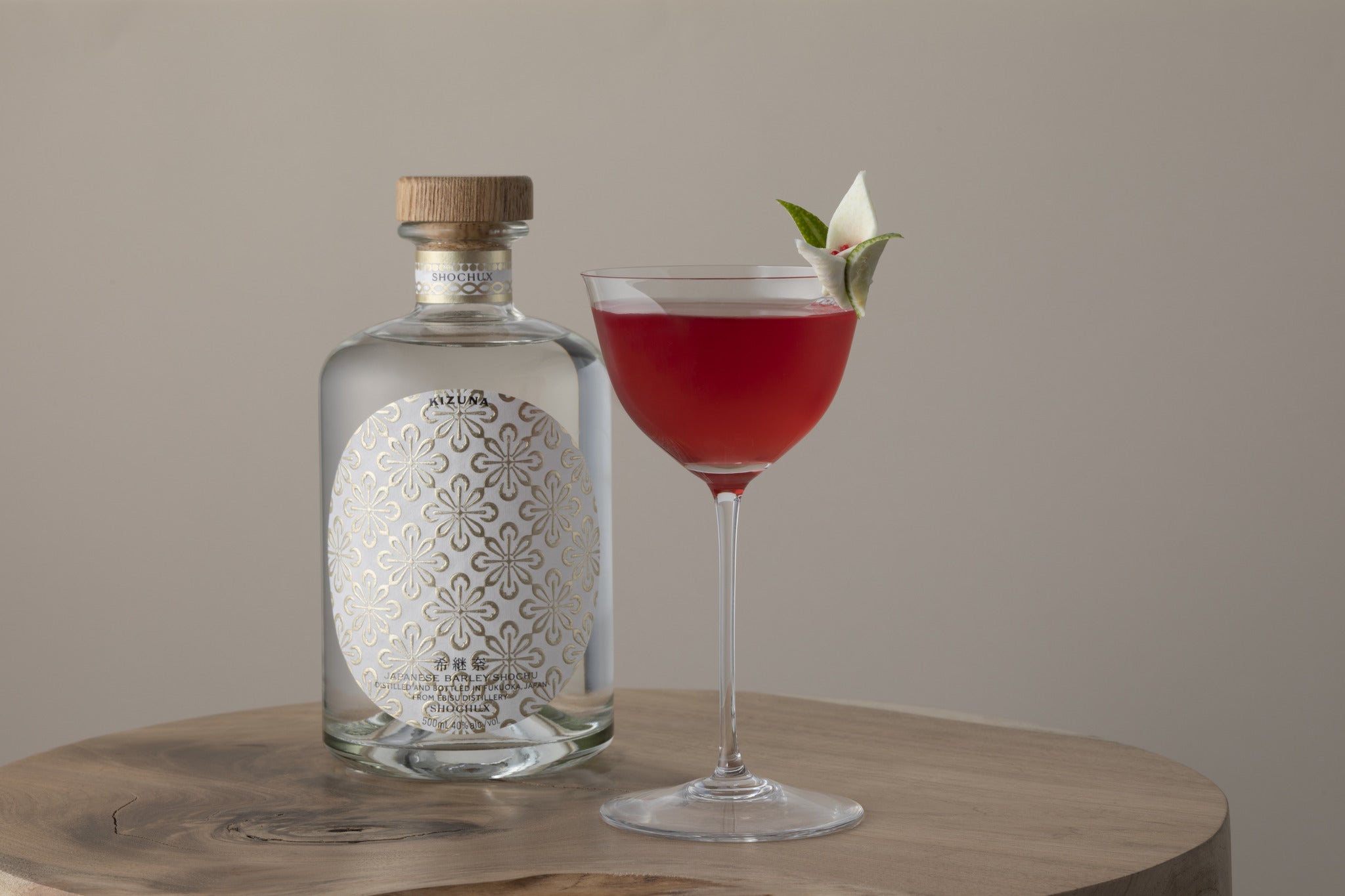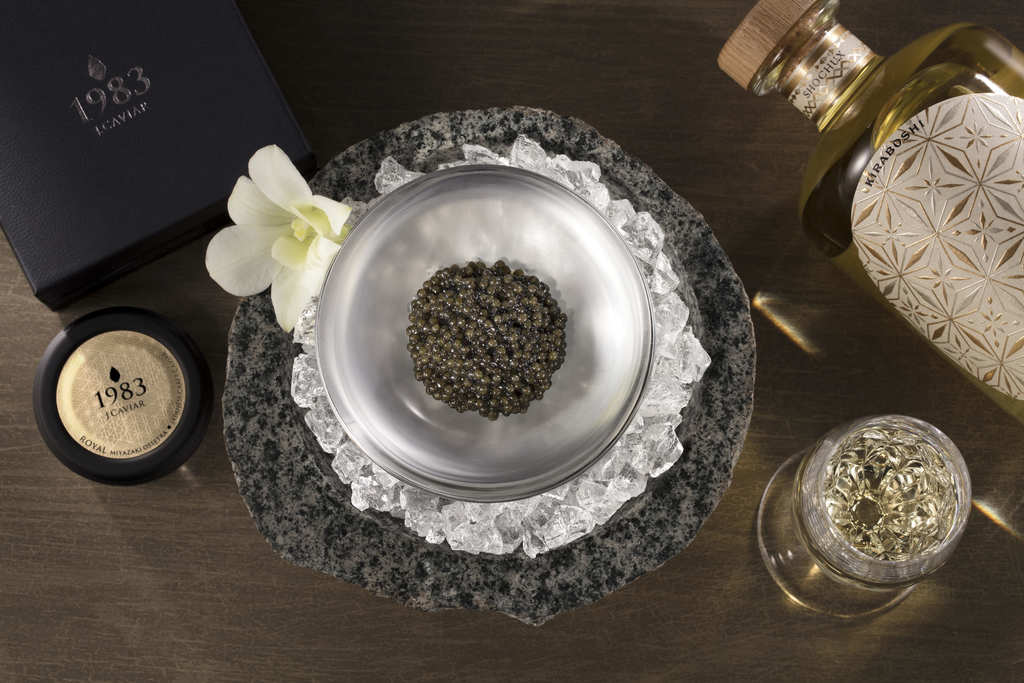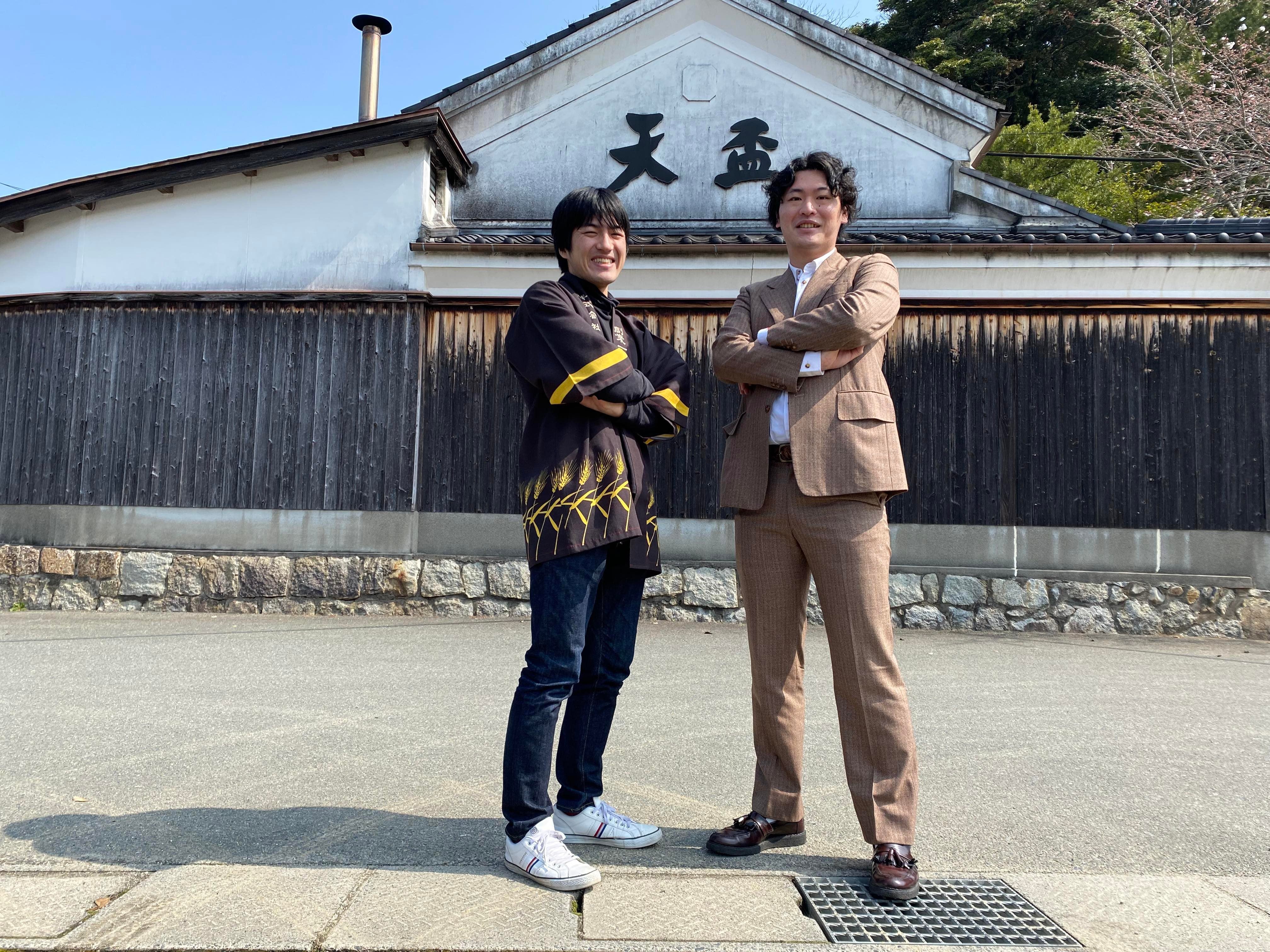
A new shochu experience brought to you by Tenka × SHOCHUX
This time, we spoke to Takumi Tada, the fifth generation of Tensaka, the manufacturer of SHOCHU We would like to ask about the future of shochu.
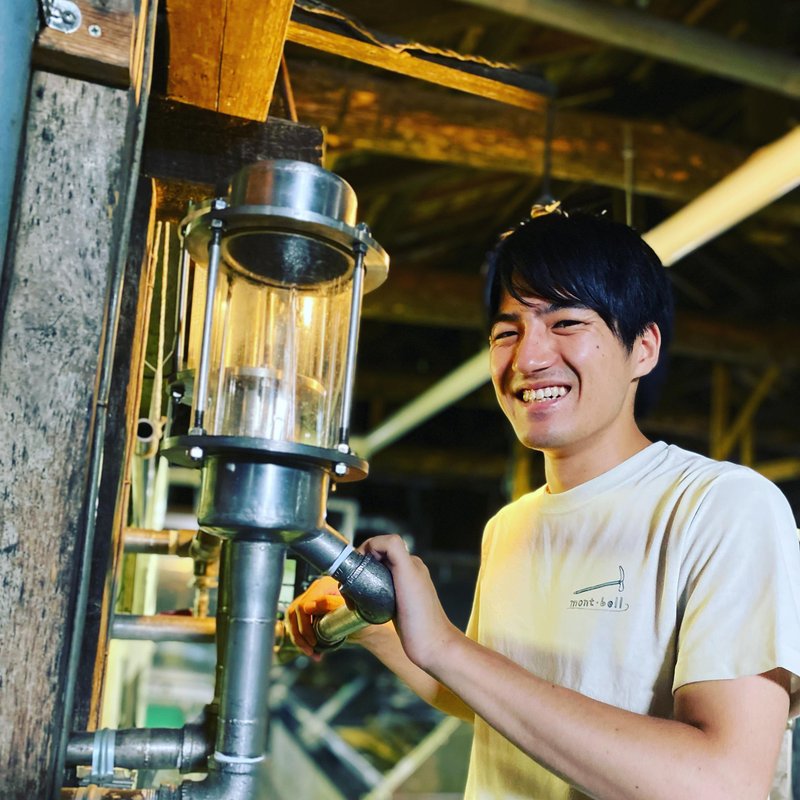
Takumi Tada
Tenka 5th generation
Born in 1994. The fifth generation of Tenka has been making shochu for generations in Fukuoka, with the aim of ``making world-class authentic barley shochu.''
Born and raised in Fukuoka, he moved to Tokyo after university, and after experiencing a wide range of work including sales, creative planning, and advertising at a digital marketing company, he returned to Tenka last year.
Currently, he is focusing on marketing his representative brand, Craftsman Tada.
“Producing authentic barley shochu that we can be proud of around the world” Tensaka’s challenge
─ First, I would like to ask you about Tensaka .
Tada (Tenka) : At Tenka, we have been making authentic barley shochu using 100% local barley. In fact, Fukuoka, where Tenka is located, boasts one of the highest yields of barley in Japan. That's why we are particular about making barley shochu using only locally produced barley, a truly high-quality raw material, without using anything produced overseas.
Since my grandfather's generation (third generation), we have been making shochu with the theme of ``making authentic barley shochu that we can be proud of around the world.''
Looking around the world, there are distilled spirits that are recognized as valuable worldwide, such as ``Scotch whisky'' and ``Cognac'' brandy. On the other hand, when it comes to shochu, it still has the impression that it is a cheap liquor, and even though there are sake and shochu in the same category of national sake, there is an impression that sake is somehow better. There is an image that it is not shochu.
Considering that shochu has been in an era where it has been difficult to recognize its value for a long time, we decided to take on this theme with the idea of creating a brand that we can be proud of to the world. is.
─ Specifically, what are the characteristics of shochu making?
Tada : In order to achieve ``manufacturing authentic barley shochu that we can be proud of around the world,'' in addition to using 100% local ingredients as I mentioned earlier, there are a few other things we are particular about.
When it comes to brewing, we are not bound by the traditional methods of making shochu, but instead build our own theory based on the method of brewing Japanese sake (sake), apply it to barley koji, and brew everything using brewing equipment designed in-house. I am.
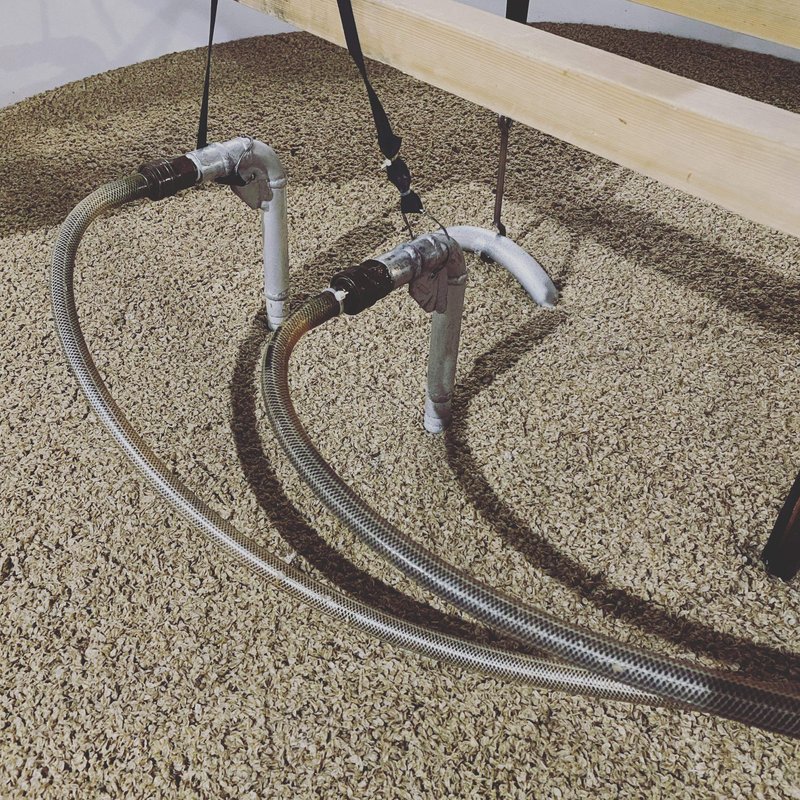
In terms of distillation, we use a method that is unique to Japan and is only distilled using a ten-sake cup, in which we distill twice using a still originally designed in-house, following the same method used for whiskey and brandy.
Another characteristic of our barley shochu is that we do not add sugar or any other additives that are not required to be labeled, making our barley shochu completely additive-free.
─ I feel that you are being challenged in an innovative way that is not bound by precedent...! If you have any iconic products, could you introduce them to us?
Tada: There is a brand called ``Craftsman Tada'' that has been in development for four years with the brand theme of ``the ultimate sake to accompany meals.''
I think that the way we have communicated the value of shochu up until now has been very much based on selling the so-called hard specs. Specifically, we have appealed to the value of the hardware, such as using this kind of yeast, using these kinds of raw materials, performing this type of distillation, and storing the product in this type of storage container for how many years.
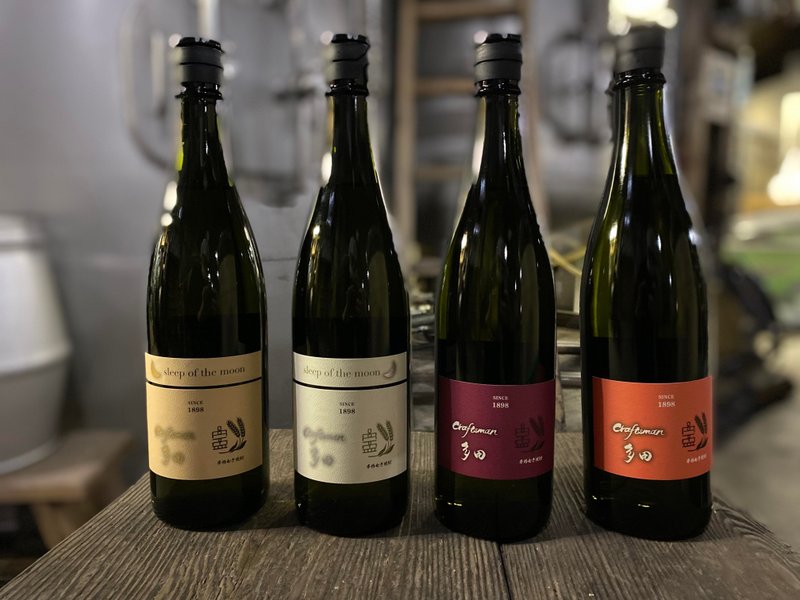
However, when we shift our focus to the customers who drink it on a daily basis, we find that they say things like, ``Today's dinner is like this, so I want to drink shochu that goes well with it,'' or ``What's the best way to drink this shochu?'' We often receive comments about the ``experience'' aspect of the software, such as ``What?''
I don't think there's anything wrong with conveying value to customers through our commitment to hardware, but in an age where so many things are so particular about things, it's important to focus on "experience" rather than "specs." This is a brand that develops four types of products under the theme of drinking with meals, from the perspective of how customers can enjoy the products.
─ It's true that when I think about pairing shochu with food...I worry about how to pair it with it.
Tada: When it comes to wine, I think there's something like, ``Today's dish is like this, so let's use this white wine, or this kind of red wine,'' but I don't think there's ever been anything like that with shochu. One of the brand's major characteristics is that, like wine, shochu can be paired with food to bring out the flavor and deliciousness of each dish.
In light of the brewery's theme of ``producing authentic barley shochu that we can be proud of around the world,'' we decided to share the same table with ``Japanese cuisine,'' which is registered as an intangible cultural heritage by UNESCO and whose value is recognized worldwide. We aim to create the ultimate shochu that our customers can enjoy.
The efforts of these two people came true because their passions overlapped.
─Next, I would like to ask you about how Mr. Tada and Mr. Hashimoto met.
Tada: When I was in Tokyo, there were two girls who worked at a restaurant that specializes in shochu, and I knew them and we talked about having drinks together. At that time, one of them said, ``There's a man who's really into shochu,'' and he brought Hashimoto, who was a college student at the time. That was our very first encounter.
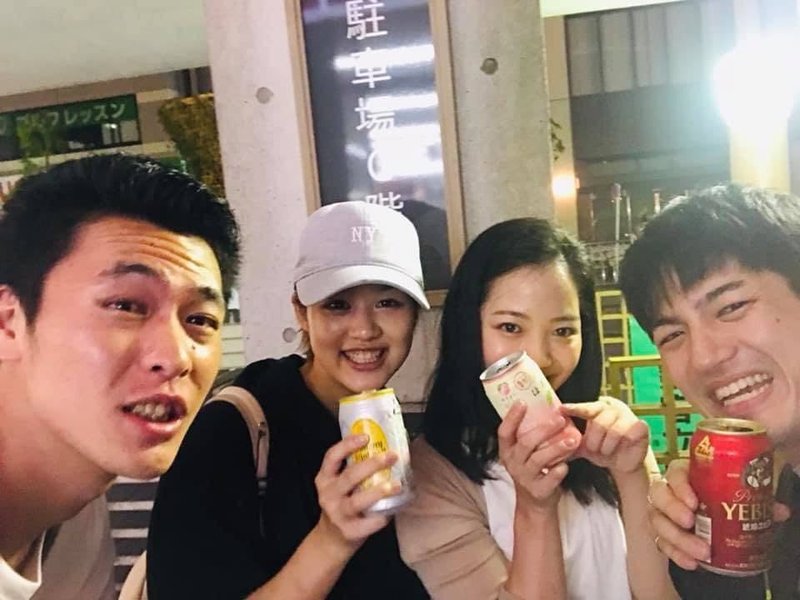
At that time, I remember him saying, ``I'm currently working part-time at a shochu izakaya, and I love shochu, so I like to visit breweries, and I actually want to create my own brand in the future.'' Masu.
At that time, I just ignored it, thinking it was just a boy talking about his dreams. (lol)
─ Please tell us your first impressions of each other.
Hashimoto: I originally knew about Takumi-san (Tada-san).
The shochu industry is very unfamiliar with the internet, and what does the word marketing even mean? However, I also worked at a marketing company in Tokyo, and I thought that he was a rare person in the industry who could think about marketing. That image hasn't changed even now.
I think the second time we met was when Takumi was participating in a shochu event in Roppongi.
It was a government-sponsored event, but there weren't many customers, so I felt like the purpose of the event was to hold a formal event, but the current situation meant that shochu wouldn't be able to be conveyed that way. He was able to clearly articulate the challenges of the event, and I felt like he was someone who really understood. (lol)
Tada: At first, I really had the image of a passionate college boy who liked shochu. He's the kind of kid you often see among young people who passionately talk about their hopes and dreams, and I thought he was just as excited as, ``I want to make alcohol into a career.''
But as we talked, I gradually realized that this person was serious, and that he wasn't just talking.
He is aware of the issues and does not just criticize them, but has a strong desire to break through and do new things in response to the current situation of an old industry, and deliver the value of shochu in this way. I felt a strong desire to increase value.
Hashimoto-kun has said it himself, but when you say "shochu guy," that's exactly what you get.
─ How did that lead to the current Rinwa initiative?
Tada : At first, I just thought, ``It would be great if we could do something together as a group of people my age,'' but it was because I could sense Hashimoto's seriousness that I realized that I really wanted to work with him.
I thought that I would definitely do this when I returned to the brewery, and every time we had a drinking party, we talked about what we wanted to do and how this was a big problem. We understood each other, and little by little, the idea began to solidify.
Around that time, around July 2021, Hashimoto-kun was talking about rebranding SHOCHU X.
When I said, ``Oh, well, we have this rare unprocessed sake, are you interested in it?'' He said, ``No, I'm really interested in that,'' and from there we started talking. has begun to progress.
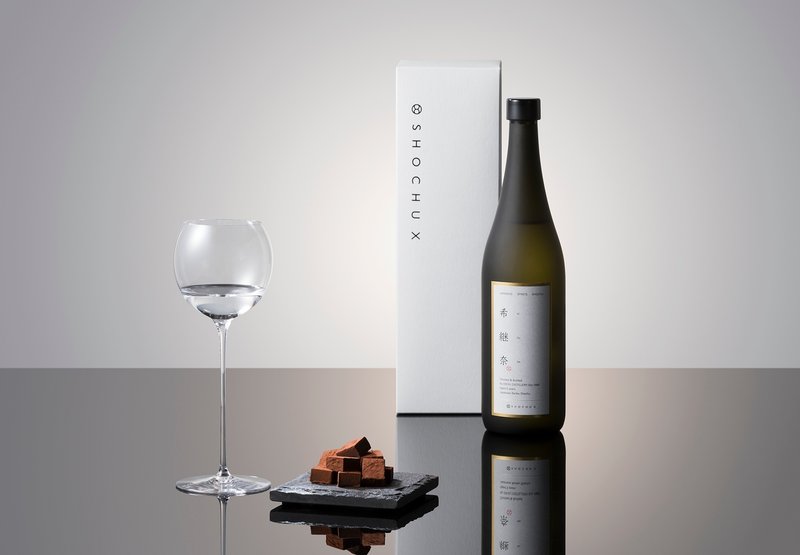
At that time, Hashimoto hadn't even tried it yet, but we decided to commercialize it, and we kept talking about wanting a price of around 30,000 yen, a package like this, and a concept like this... I did.
So now it feels like it's taking shape.
─ Were there any areas where your feelings overlapped?
Tada : There was a lot of overlap in wanting to raise awareness of issues and value. I don't think it will sell just because it's a famous brand, but I feel that the perspective of the maker and the seller are very much in sync, as it's about creating the groundwork ourselves and conveying and creating that value.
I feel like that feeling becomes stronger every time I meet you.
─ Mr. Tada and Mr. Hashimoto, you two are really good friends.
Tada: We probably meet once every other week, right? The reason we get along so well is because we can clearly say what we want to say to each other.
Generally speaking, Hashimoto-kun and I have an OEM relationship between a distributor and a manufacturer, so normally I'd make what I'm told, and then I'd have to buy all of it by when, because there's no point in leaving it. I think the relationship will be one where we simply write a contract and ship what we are told. In that case, no matter how he sells it, as long as he doesn't say anything that seriously defames our reputation, I don't care about that.
However, the relationship between Hashimoto-kun and I is not like that, and I have already said 100% of what I thought, such as the way we communicate and the way we convey value.
At first, I felt like that was overstepping the line, but Hashimoto-kun's stance of ``Let's make it together'' kept me going. Hashimoto-kun has also clearly told me that he doesn't think so.
I didn't approach it with the feeling that it was an OEM product or a private brand product, but rather that I wanted to work with the two of us to make it together.
Because we have a common understanding of the issue of increasing the value of shochu, we are able to communicate clearly and I believe that we were able to bring Rinwa to the world. .
Hashimoto : I have always thought that there is a difference between whether you think of it as just outsourcing or whether you think of it as a partner. Everyone involved in SHOCHU
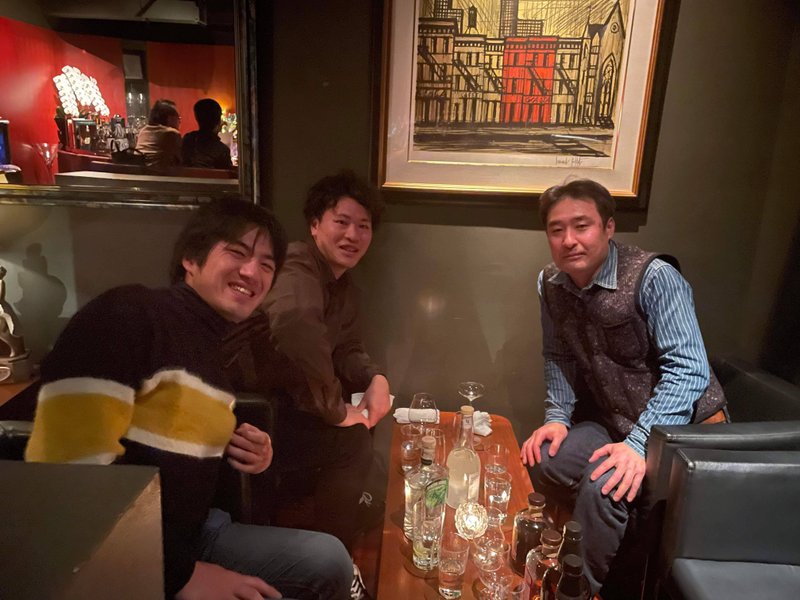
So, of course, I think that if we don't have that kind of relationship with sake breweries, it's all over.
Tada : That's why "Rinwa" is Hashimoto's brand, but it feels strange, but to me it feels like our own brand.
For the product page, the day before the release, we connected via ZOOM, went to the office, and worked on the text together, making changes until the last minute, saying things weren't right this way or that way.
Why high-proof shochu “Rinwa”?
─ He is truly a friend. Why was Rinwa your first project?
Hashimoto : As mentioned on Rinwa's product page, I've been thinking for a long time that it would be really interesting to make shochu in the "high proof" genre.
First of all, I simply like high-proof products, but our concept is ``TRANSFORM SHOCHU,'' which is to change shochu, and we are creating new value for shochu. It is based on the desire to live.
This kind of world exists with other distilled spirits such as whiskey and brandy, but it doesn't exist with shochu, and that's what I always had in mind.
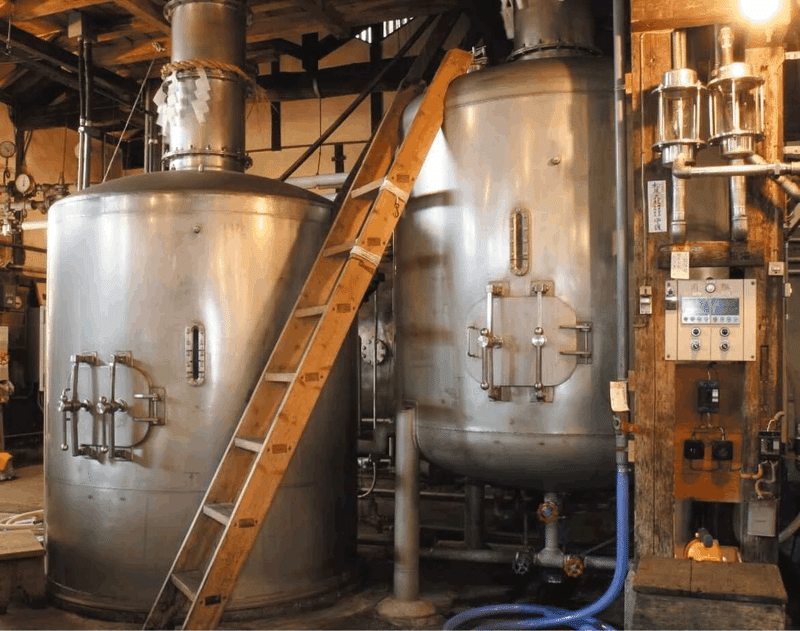
I've been thinking about what kind of products would be good to change shochu, and I have various ideas, but one of them is to think about what other alcoholic beverages have that shochu doesn't have, and what shochu has until now. We believe that high proof is one of the important elements to break the common sense.
At that time, Mr. Takumi suggested making Rinwa's original sake, so I thought we had no choice but to do it. It was an instant decision.
The biggest reason we decided to commercialize Rinwa is that we are able to produce Rinwa, a product with such precision, because Tenka is a one-of-a-kind double distiller.
─ This was possible because of the Tensaka cup.
Tada: That's right. Shochu is usually distilled only once, so even if the alcohol content increases, it's only about 45 degrees, and no matter how hard you try to raise it, it physically won't reach 50 degrees.
Therefore, if you want to achieve a high proof like this Rinwa, you can only do it by double distilling.
Hashimoto : Honestly, thankfully, there are quite a few other sake breweries who approach us and say, ``Let's work together.'' However, there is no point in vaguely releasing a product, so the sake breweries we ask to manufacture it not only focus on the technology, but also the reason for wanting to do it and the backstory.
In that sense, Mr. Tenka had a clear reason for undertaking this project.
Tada : A big thing is that our company has always been committed to ``producing authentic barley shochu that we can be proud of around the world.''
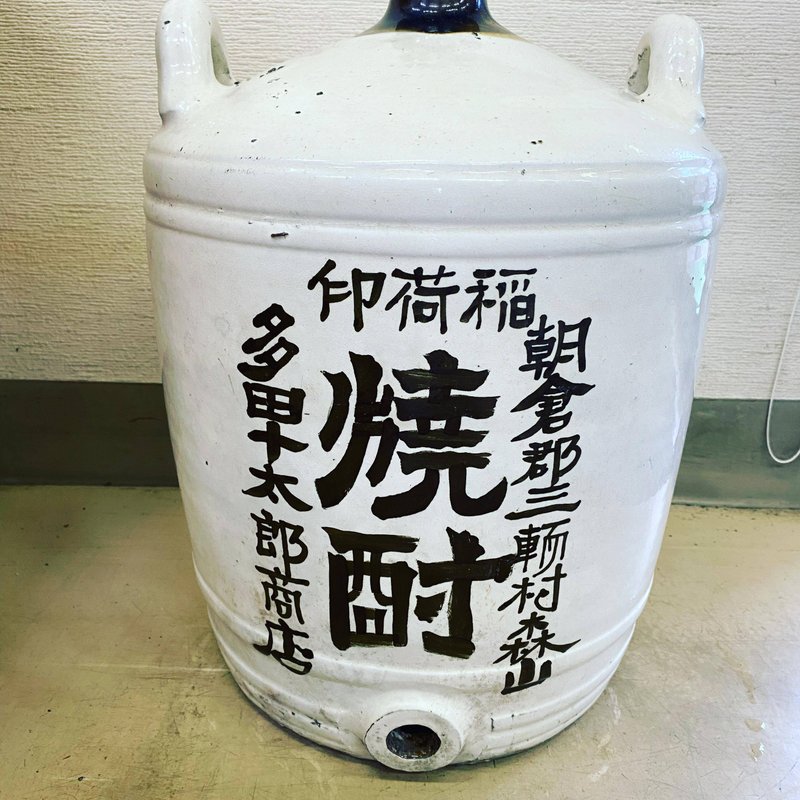
There are two types of shochu: shochu that is colored when stored in barrels (barrel/brown spirits) and uncolored shochu that is stored outside of barrels (white spirits). So, what is the unblended sake that can seriously compete on the world stage? When asked, Rinwa's unblended sake was the perfect choice.
In the shochu industry, there is a concept of storage that says that what is in the barrel is better, and a concept of aging that the longer it is left to age, the more valuable it becomes. That in and of itself is not a bad thing, but when I wanted to create a new genre of value that could compete on the world stage with a yardstick that had never existed before, I thought to myself, ``Oh, this is the only unprocessed sake I have.'' I did.
Then, I thought that it would be better to convey this value to people who are not drinking shochu in a completely different way, rather than to people who have been drinking shochu. , I thought that this would not be possible unless my partner was someone who had exactly the same feelings as me.
Since this was something that had never been done before, I felt that unless I teamed up with someone who could convey the message in a way that had never been done before, it wouldn't be able to be conveyed properly, so I made a proposal to Mr. Hashimoto, who had the same feelings as me.
─ I don't think that unprocessed sake can be created overnight. Was it originally planned to be commercialized?
Tada : To tell you the truth, that's not the case at all. The initiative was born 10 years ago when my father, the company's president (fourth generation), thought about the storage environment and the best way to store it.
For example, whisky, etc., is stored in barrels with a very high alcohol content of around 60%, but 10 years ago we noticed that a higher alcohol content might be a better environment for aging. That's what made me pay attention to it.
At that time, I had no idea how to sell it, and as a creator, I simply wanted to try it, and I wanted to try making it, so I started storing it.
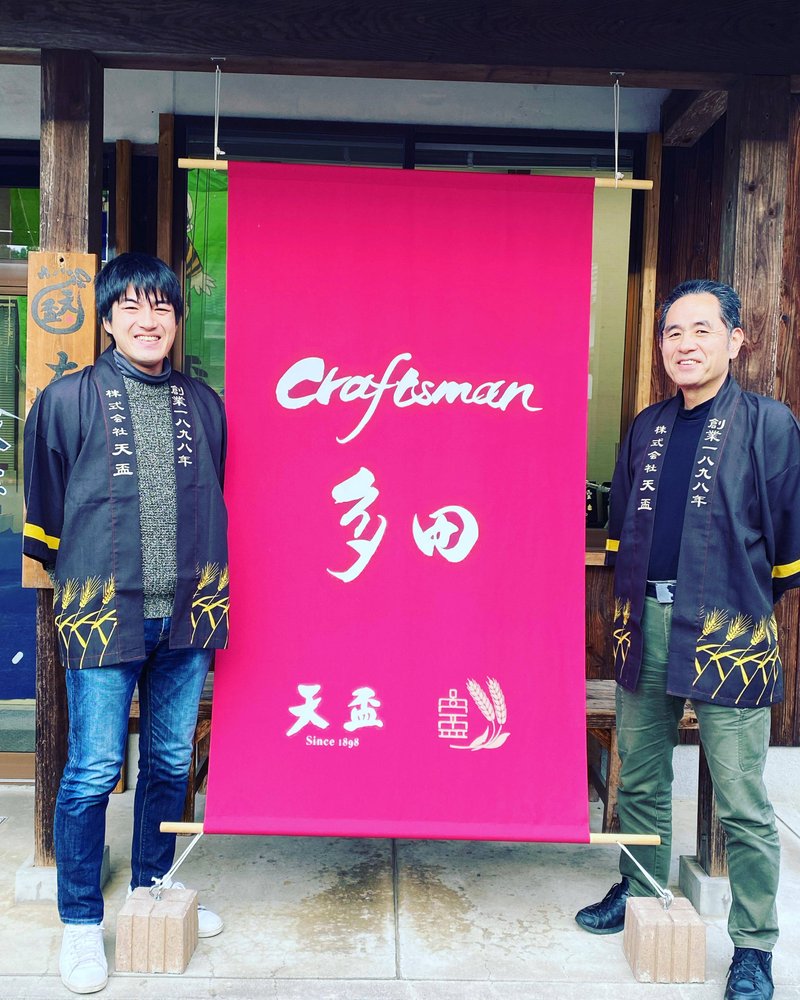
Actually, there are rules for authentic shochu that require alcohol content to be below 45%, so this time we released it as a spirit, but since we didn't have a spirits license at the time, we just sold it as is. If you submit it to the government office, they will say no because you only have a license for authentic shochu.
So, on the other hand, if you submitted it normally, you would be told no, so it was a challenge that no one wanted to do or could do.
At that time, the president of the company discussed many times with the person in charge and his superiors how this could be achieved, and came up with a clue as to how to achieve storage at temperatures above 45 degrees and storage at 59 degrees. After searching and searching for it, I finally found it 10 years ago, and it turned out to be unprocessed sake that had been sitting in a jar in a warehouse.
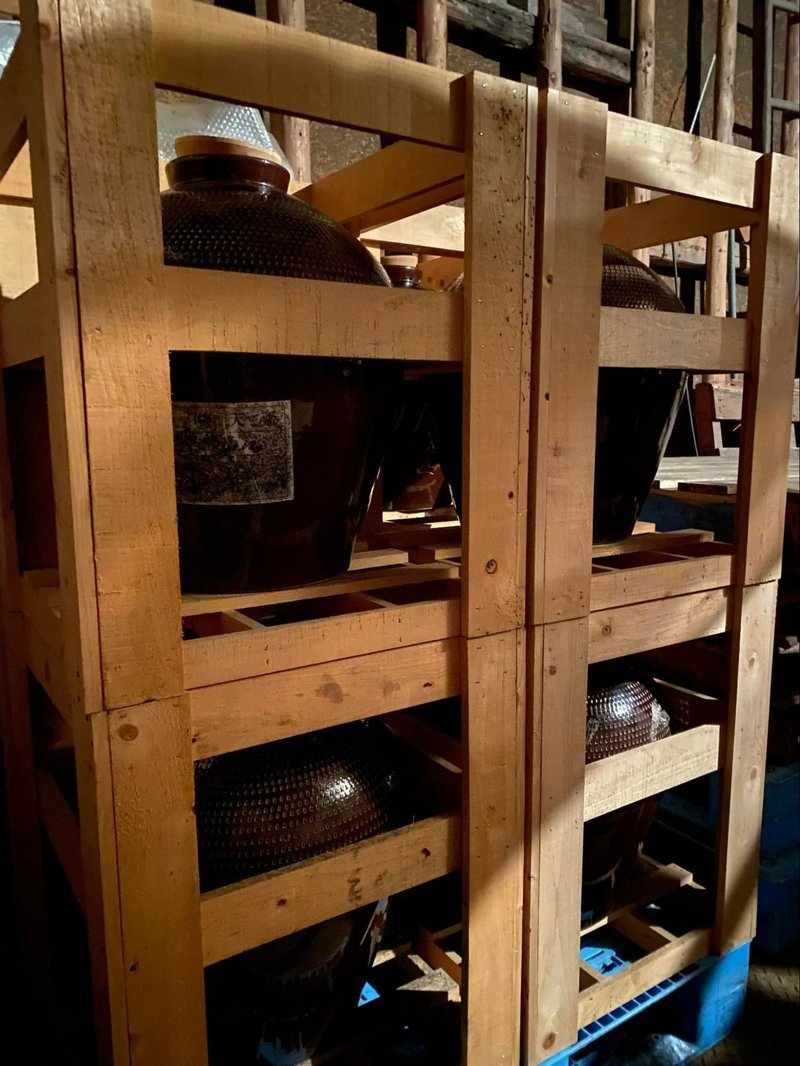
Then, around the time when the question of what to do with the unprocessed sake was forgotten, I was talking with Mr. Hashimoto about wanting to bring to the world something that would raise the value of shochu, something that no one else has. While looking at the list of shochu, I thought to myself, ``Come to think of it, that one that's aged at 59 degrees will probably be 10 years old in a little while.''
Hashimoto-kun agreed, and it took shape as “Rinwa.”
The ultimate experience we want to deliver to our users
─ Please let us know if there is anything you would like users to feel or experience through “Rinwa”.
Hashimoto : First of all, as Mr. Takumi said earlier, the standard for evaluating shochu is storage and aging, but this "Rinwa" has a different value of high proof. Therefore, I am sure that there are experiences that can only be enjoyed at Rinwa.
First of all, I have a strong feeling that I want people to feel it purely.
The unique length of the aftertaste brought about by high proof.
I think it's a one-of-a-kind experience where you can enjoy the endless flavor of the barley, the spiciness that comes from the jar, and other nuances that last forever.
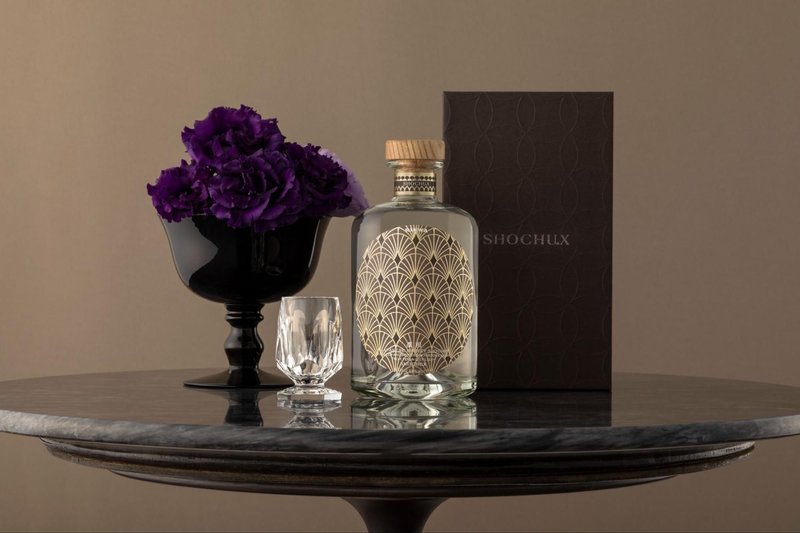
Tada : At the extreme, I take it for granted that the taste is delicious.
The unprocessed sake that my father started storing at that time was passed down to me, and together with Mr. Hashimoto, who is of the same generation, we created ``Rinwa'' with the same desire to truly increase the value of shochu. I think.
We are conducting research and creating various products every day to increase the value of shochu.
Of course, the taste and aroma are important, but at Rinwa, we want people to feel and empathize with our desire to seriously compete on the world stage, and to dream together with us. I wonder if this is the value I want to deliver.
I've been telling Hashimoto-kun that I want to spread the word about this kind of software more and more, and that I want people to know about it. I'm very happy.
─ Sharing dreams is a very nice word.
Tada : The same goes for other shochu products that Hashimoto sells. However, I believe that we are working together with people who have the same desire and dream to seriously increase the value of shochu, not just because it is delicious or because we have a good relationship.
In my case, the fact that I'm closer to my age gives me another advantage, so I want to be a standout member of SHOCHU X (lol)
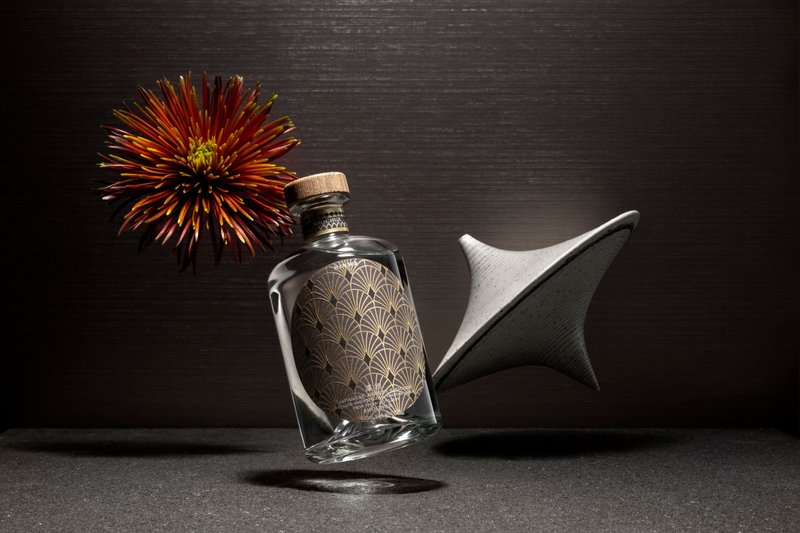
The future of shochu that these two aim for
─ Please tell us about the future of shochu that the two of you are aiming for.
Hashimoto : I think that Takumi-san and I want to take on the same challenge.
Fundamentally, I want to increase the value of Japanese shochu and spread it to various places.
I think the most important thing for this is to increase the number of people in this industry. I feel that it is important for the industry to raise the value of shochu and increase the number of people who promote it.
Through SHOCHU
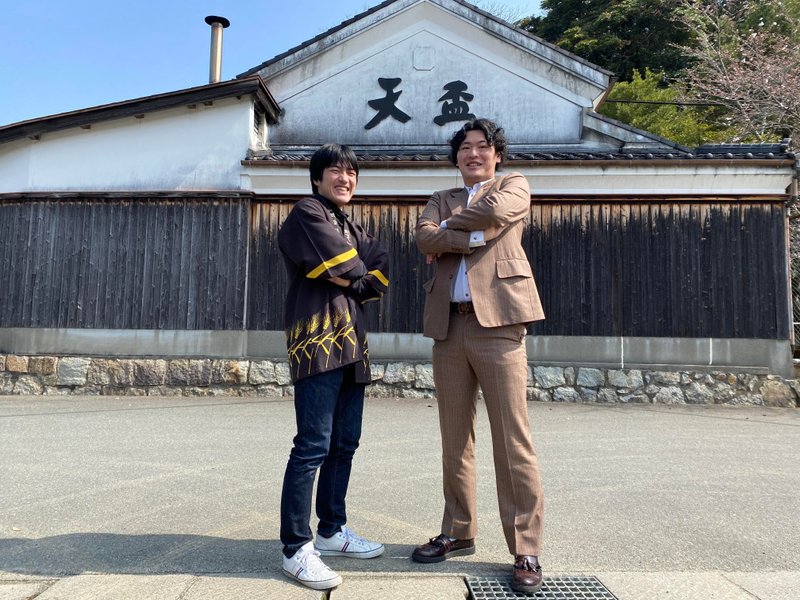
Tada : The number of people who drink shochu is decreasing rapidly these days, and even among people of our generation, there are many who find shochu a bit of a chore. Honestly, I think there are more people who have a negative impression of shochu than a positive one.
So, I feel like we're not just trying to get the people who are drinking it now to continue drinking it, but we're also creating a new market.
In order to spread the word not only to people who drink shochu every day, but also to people who don't, we need to create a new market where the value of not only the taste but also the worldview and thoughts are recognized. That's what I feel strongly about right now.
That's why we need a completely different approach like Hashimoto's, and I don't think just talking about the product's specs will ever increase its value.
That's why we have to bring in a new measuring stick, and that's why we chose a standard for Rinwa that is completely different from existing measuring sticks.
On top of that, I would like to create a new market by empathizing with our thoughts and dreams, not just the specs, and I don't want to just "hold my finger on this", but I would like to create a new market in that way.
I think Hashimoto-kun and I need to convey, enhance, and spread the value, and to put it another way, I don't think there are that many people who can do this.
Japan's population is decreasing, and the number of people who drink shochu is also decreasing, and the current situation is that the industry is competing for drinkers among the drinkers, but that is not the essence. That's what I think.
I want to escape from the world of simply comparing specs and thinking, ``This one has better cost performance.'' In the shochu industry, I believe that this challenge could only be taken on by Hashimoto-kun and me.
─ Mr. Hashimoto's point of view to enliven the industry and Mr. Tada's point of view to create a market. Although our viewpoints were different, I felt that we were two sides of the same coin and looking toward the same future.
Tada : On the contrary, since we have different perspectives, I think that working together creates a synergistic effect.
Hashimoto : Listening to what I've said so far, I think some people might get the feeling that I'm doing it in a pessimistic way, but that's not the case at all, and the truth is that I'm just doing it because I'm super interesting. . I'm not trying to help the shochu industry or have parental feelings, so I hope you can understand that. (lol)
Tada : I've talked about a lot of things so far, but rather than doing it because of my current awareness of the issues, to be honest, it's the two of us that have the most fun doing it together. Make it simple!
♦ Editor's Note It was a peaceful conversation where you could feel the strong bond between the two of them, with lots of laughter while talking about the passion that was put into "Rinwa".
After the conversation, we secretly asked Mr. Tada and Mr. Hashimoto about their next project, and they told us that they will create a unique new product that is different from the current "Rinwa" and is created by human connections, technology, and history. I was so excited when I heard that it was being planned!
Please look forward to the two of them continuing to take on challenges in the future!
